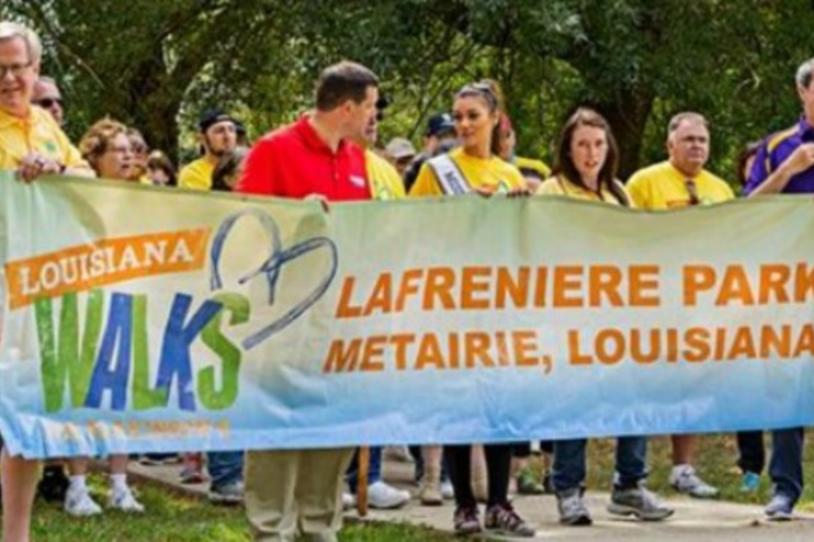
The Michael J. Fox Foundation's policy and advocacy volunteers are a dedicated group of individuals who work to advance government initiatives in support of people with Parkinson's disease (PD). They meet with their elected officials in Washington, DC; educate their communities on PD; and build relationships with local government officials to advance policies in their states.
Michelle Lane from Louisiana has been advocating for people with Parkinson's for 15 years. As a leader in the community, she's helped pass legislation to increase research funding and secure better support services for people living with the disease. She also organizes an annual fundraiser, Louisiana Walks for Parkinson's, which is taking place on Saturday, October 15.
Benjamin Bement and Charles DeBlieux, also from Louisiana, work to influence Parkinson's policy issues with Michelle. Here, they explain how public policy impacts people with PD and why they advocate for the community.
Explore policy issues affecting the Parkinson's community and learn how to contact your elected officials to make your voice heard.
Why did you chose to get involved in Parkinson's policy and advocacy?
ML: I was introduced to the Parkinson's Action Network, which merged with MJFF in June, at a conference in 2001. They needed an advocate leader in Louisiana. I felt I could lend my voice and make a difference. I told them to sign me up, and I've been a very active advocate for 15 years.
BB: After my diagnosis, I had a pity party that lasted for a few months. When I was done grieving the diagnosis, I started looking on Facebook for information and support pages. I came across a post of Michelle Lane speaking about a Parkinson's policy and advocacy forum in Washington, DC. She drew me into the fold. Within two weeks I was signed up and driving to DC to be a part of it all.
CD: Because I realized soon after my diagnosis that if I didn't, who would?
What is your favorite part of advocating for the Parkinson's community?
ML: Meeting people from all over the United States, and being able to work as a team along with who I call my "PD family." Also, there's something about feeling that I can still make a difference in the lives of those touched by Parkinson's, whether it is a newly diagnosed individual or someone who, like myself, has been living with Parkinson's for many years.
BB: The people. I have met so many wonderful people who are passionate about advocating for Parkinson's. I discovered that you can be active and have a voice, no matter what stage of Parkinson's you're in. Seeing all of the other advocates overcoming their difficulties to make a difference has inspired me.
CD: The contact I have with those in government and getting to know other advocates around the country.
What policy issue(s) are most important to you?
ML: All issues that relate to living well with Parkinson's are crucial. While research and a cure are important — and we must advocate for these things — it is vital that we continue to work on issues that help us deal with the day to day and improve our quality of life. Those include Medicare, veterans affairs issues and therapy caps, just to name a few.
BB: A national PD registry would open up the floodgates of information to researchers and would shed light on so many aspects of PD. It could help answer questions that haven't even been asked yet.
CD: Funding the national Parkinson's disease registry would help tremendously in perhaps getting us closer to a cure.
Explore policy issues affecting the Parkinson's community and learn how to contact your elected officials to make your voice heard.